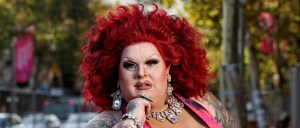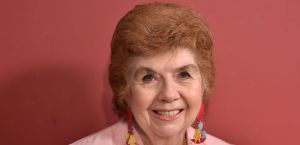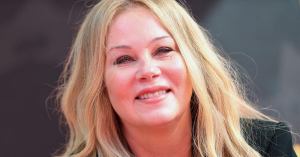Jennie Garth invited her former spouse, Peter Facinelli, to speak openly about their co-parenting process for the first time on her iHeartRadio podcast, I Choose Me. The podcast, which aired on June 5, discussed the intricacies of the couple’s relationship post-divorce and the challenges they faced as they raised their three daughters: Luca (26), Lola (21), and Fiona (17).
Facinelli, 50, initiated the conversation by recognizing the distance that had grown between them over the years. “We haven’t really spoken a lot about life about stuff in years, so I honestly don’t know you … and I don’t think you know me,” he confessed, per Us Weekly. Facinelli drew a parallel to visiting family members who treat you as if you’re frozen in time, not acknowledging personal growth. “When we look at each other, we still look at each other like the 21- [and] 22-year-old version of each other,” he said.
Videos by PopCulture.com
Amid the remnants of their failed marriage, the couple, who were married from 2001 to 2012, had to deal with the responsibilities of co-parenting. Facinelli described the struggle, saying, “When you break up with someone, and then you still have this immense, tremendous responsibility with them, you have to put everything aside to like to work together.”
Facinelli also reminisced about their early days, recalling his mindset when Garth was pregnant. “I was a baby having a baby,” he admitted. He expressed concern for their daughters, hoping they wouldn’t follow the same path at such a young age. “At 21, [Jennie], you were a year older [and] you’ve been working in the business since you were 15,” he continued. “I literally just landed in L.A. … and six months later, I was having a baby. So you know, that wasn’t planned, obviously.”
The Twilight actor revealed that he brought up the topic of divorce while they were in their shared RV. Garth remarked, “That’s why we sold that RV,” adding that she was enraged by his decision. Facinelli explained his reasons, likening their marriage to an arranged one. “I loved you, and we had this beautiful family, from the outside but I just was I hadn’t developed who I was. I don’t even know how you could love me because I didn’t know me,” he explained.
Facinelli said he could not develop his identity due to the constraints imposed by his roles as husband, father, and actor. He acknowledged that without their children, he might have left earlier in search of himself. “I think that if we didn’t have kids, I wouldn’t have stayed because I would have had the freedom to go, ‘OK, I need to be able to figure out who I am,’” he confessed.
Post-separation, they agreed on shared custody. Garth admitted to sometimes regretting not fighting for more time with her daughters. However, she recognized that equal time with their father was “absolutely the best thing for them.” Facinelli also struggled with the transition, feeling like the girls were just visiting him rather than having two homes.
They both acknowledged the impact of their tension on their children. “I feel like they needed both of us. You know, they really did benefit from having both of us,” Facinelli stated. They tried to manage their personal issues to maintain a united front for their daughters.
Due to a lack of parenting strategies, they turned to their childhoods for guidance. Garth recalled feeling overwhelmed by Facinelli’s lively Italian family gatherings, especially as an unmarried, pregnant woman in a Catholic household. They also differed in how they expressed emotions to their children, with Garth being more open and Facinelli trying to maintain a facade of normalcy.
The conversation took an unexpected turn when they discussed their daughters’ attempts to manipulate them. Facinelli shared an instance where their youngest, Fiona, would give conflicting reports about her mood to her parents to get her way. “It’s tough. It takes patience [and] it takes a lot,” he admitted.
Garth confessed to struggling to relinquish control over Facinelli’s parenting style. “I would send them to you and I would think they weren’t being taken care of well enough or to my standards or whatever it was,” she said. She learned to step back, realizing he was doing his best.
The podcast episode reached an emotional peak when they discussed the psychological impact of their divorce on their children. Garth, nearly in tears, acknowledged her shortcomings. “I could have been better about that, and that’s hard for me because I did my best, but sometimes my best wasn’t the best,” she admitted.
Garth expressed pride in their progress despite the challenges. “I am really proud of the progress that we’ve made over the years,” she said, noting that she can now lean on Facinelli in times of need.
Most Viewed
-

SYDNEY, AUSTRALIA – FEBRUARY 26: Drag Icon Maxi Shield poses against the cycle way construction site (along Mardi Gras parade route on Oxford ) on February 26, 2025 in Sydney, Australia. The Sydney Gay and Lesbian Mardi Gras parade will return to Oxford Street for the 47th time. The parade began in 1978 as a march to commemorate the 1969 Stonewall Riots in New York and has been held every year since to promote awareness of gay, lesbian, bisexual and transgendered issues. (Photo by Don Arnold/WireImage)







